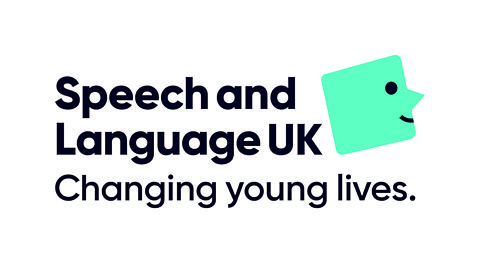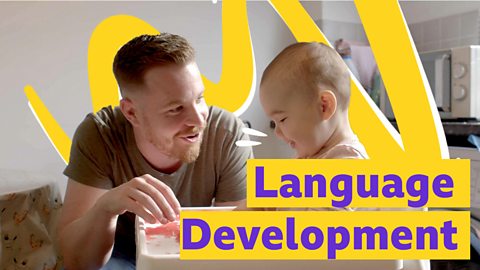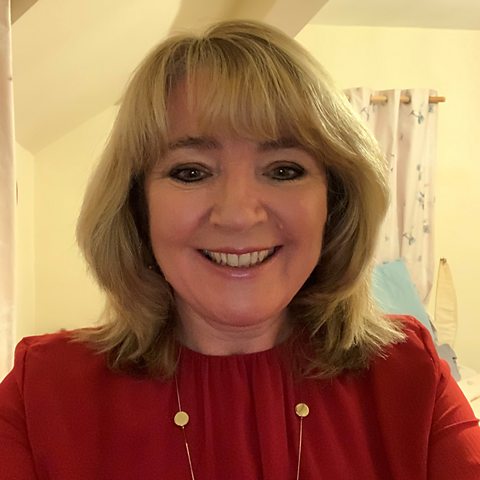
As a new parent, you might find yourself asking when do babies start to talk? We've been talking to a speech and language therapist to find out the answers.
Babies often start saying their first real words between 10 and 18 months. They may babble and make sounds long before this and if you respond to this regularly, you will help the babble turn into words.
Itâs important to remember that every child is different and will develop skills in their own time.
Before they start to talk, look out for âpre-verbal skillsâ like making eye contact, sharing attention and taking turns, which appear way before words or sentences.
Below you'll find answers to some of the most common questions parents have about language milestones.
Do babies communicate before they learn to talk?
Before they can form words, your baby is trying to communicate with you by reacting to sounds, taking turns and looking around for people they can interact with.
This starts very early on â even before a baby is born they may hear sounds in the womb and move when they hear familiar voices.
Look out for early signs that your baby is trying to communicate with you â do they look at you when you are talking to them? Do they smile back when you smile or talk to them?
After a few months, do they babble or make sounds that arenât words, but seem like they have meaning? By 12 months, are they pointing to things they are interested in?
These are all positive signs that your baby wants to communicate.

When do babies start babbling?
All babies develop at different rates, but it is most common for babies to start babbling by 6 months old. Generally, this starts to sound more 'word-like' from 9-12 months.
If your child is not making sounds by those ages, it's worth double-checking that their hearing is OK and making sure that they have plenty of time with their dummy out. Spend lots of time talking face to face and giving your baby the chance to respond.
If you continue to feel concerned, then please speak to your Health Visitor.
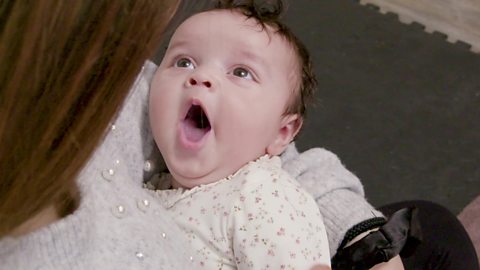
Typical stages and milestones of speech and language development
Donât get hung up on comparing them to others. Some may be quicker at physical things like crawling, while others are chatterboxes from very early on.
However, there are some recognised key communication milestones that children usually follow.
| Skill | Age |
|---|---|
| Smiling | 6 - 8 weeks |
| Copying sounds like blowing raspberries | 7 - 9 months |
| Babbling (making strings of sounds) | 9 months |
| Waving 'goodbye' and shaking head 'no' | 9 - 12 months |
| Understanding some simple words, e.g. 'car' | 12 - 15 months |
| Pointing to things they want | 12 - 18 months |
| Saying some recognisable words e.g. âmummyâ/âhiyaâ | 12 - 18 months |
| Putting simple phrases together e.g. âall goneâ; âmore juiceâ | 18 - 24 months |
| Starting to make simple sentences of 3 words or more | 26 - 30 months |
| Asking for stories to be repeated | 31 - 36 months |
| Asking âwhy?â and âhow?â questions | 3 - 4 years |
If you're worried about your child's speech and language progress, why not try ? It's a quick questionnaire which helps you see how your baby or child is getting on with their speech, language and communication development.
Itâs not the same as a standardised measure a specialist would carry out but it should give you an idea of how your baby or child is developing and whether you need some support or advice to help you and them.
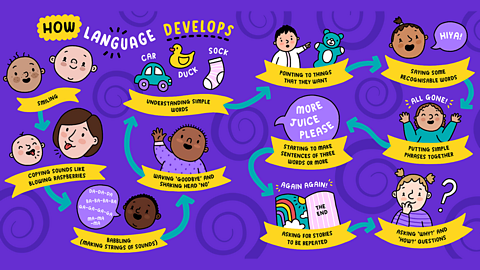
How do children learn to form sentences?
Children need to know at least 50 words before they will start to link them together to form sentences.
Encourage gestures along with words as research has shown this can encourage sentence development.
To make meaningful sentences children need a range of action words (verbs) to link with the naming words (nouns) e.g. teddy jumping, eat banana, and eventually describing words like colours, shape and size.
You can help sentence building by using an 'add a word' technique. If your child uses just one or two words, react positively and repeat back with an extra word. For example, if your child says 'car go' say 'yes, the red car's gone'. This technique helps your child absorb new sentences in context.
Remember to introduce new words every day and explain them to your child. The more they see, hear and experience language the more likely their sentences will develop.
If you are concerned that language is not progressing, discuss it with your local health visitor.
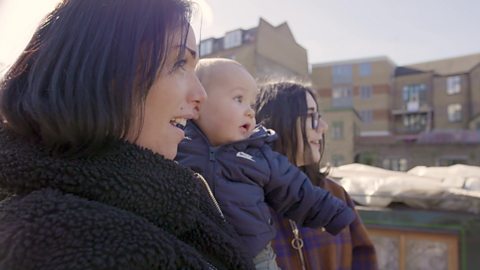
What age should you start to worry about no clear words being used?
Before you worry about how clear the words are, focus on whether your child can concentrate, listen, understand and start to use words.
The clarity comes once they have got practice in all of these areas. You can encourage word development through interacting with your child and the world around them.
Follow their interest and talk about what they are looking at. Check out this page if you are worried about your child's language development.
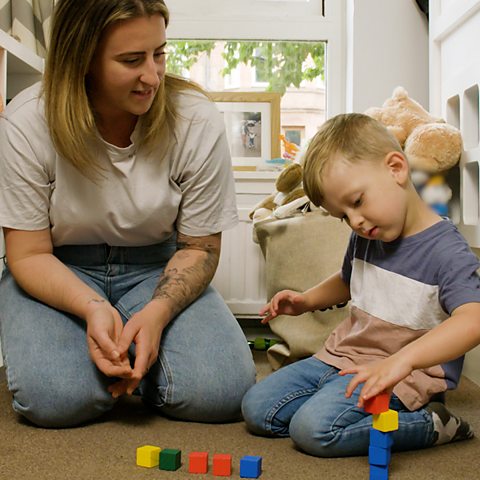
What do health visitors do?
You will be offered until they are around two and sometimes longer.
Many aspects of their health and development, including their language and communication, will be tracked. Itâs really important to have these checks, particularly as they are a good opportunity to share any worries or concerns.
These checks vary depending on where you live but will involve a member of the health visiting team talking to you about all aspects of your childâs development at your home, in a clinic or childrenâs centre.
They may go through an âages and stagesâ questionnaire which asks questions about your childâs development.
How can a health visitor help my child's language?
Itâs important to give honest answers to a health visitor so you can get the right support if your child needs it. If you are unsure about any questions, say so and the health professional can explain.
You know your child best, so if you have any worries donât wait for a health check to come round: ring your health visiting team, talk to your GP or ask your nursery practitioner for their advice.
Find out more about the role of a health visitor.



